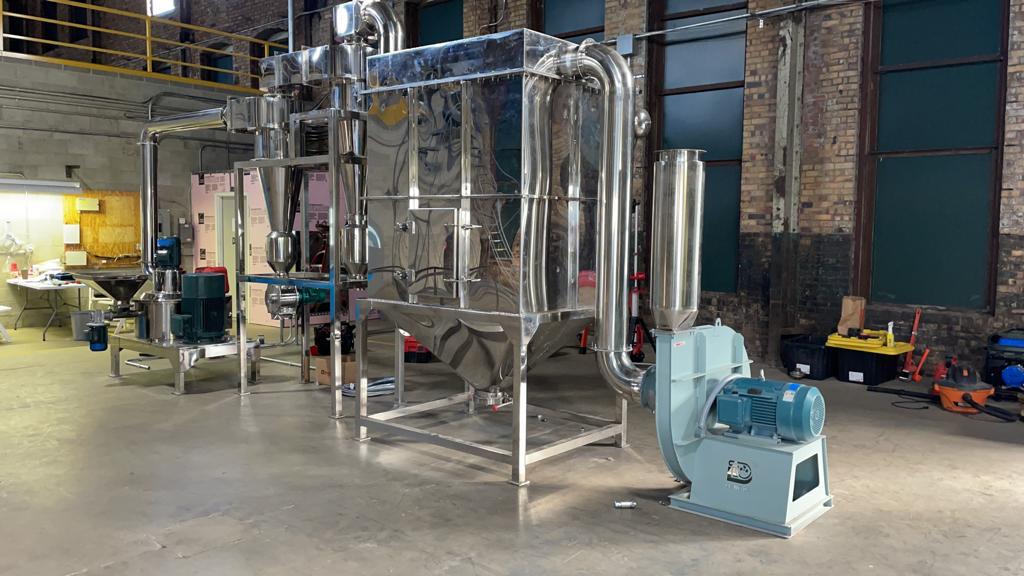
Feature: Farm to Flame Energy
Providing affordable and renewable power
By Cody Januszko
Media InquiriesFarm to Flame was founded in 2018 by Will McKnight (CRO) and Kwaku Jyamfi (CEO). The company began as a means to commercialize a combustion process that McKnight’s grandfather and uncle patented. In 2020, Jyamfi asked fellow Carnegie Mellon alumnus Stefano Alva (CFO) to join the team.
After receiving funding from a variety of sources including Carnegie Mellon University, Syracuse University, and the United States Environmental Protection Agency, Farm to Flame is providing affordable and renewable power to areas around the globe.
Farm to Flame’s combustion process allows several agricultural and food wastes to burn without smoke or odor, transforming the waste into accessible, reliable and affordable biomass with low emissions. Locations like farms and sawmills that produce plant waste can utilize Farm to Flame’s fuel processor to turn the waste into energy. Traditional energy technology that utilizes biomass relies on burning wood chips. This produces a lot of ash, leading to down time and maintenance. Farm to Flame’s safe powder burns much cleaner than wood (smokeless-odorless) and can provide a cleaner energy alternative to those who rely on biomass for power. This can mean a solid backup to the grid, or a reliable source of energy on its own for places where there is no reliable power grid.

Their success is underscored by the array of grants and competitions that they have won. In 2021, they secured a Small Business Innovation Research (SBIR) grant for $100,000 from the EPA. Additionally, they received $75,000 from the New Jersey Commission on Science, Innovation and Technology (CSIT).
Most recently, in 2022 they have won $50,000 from the Cisco Global Problem Solver’s Challenge and another $50,000 from the Capitol Innovator’s Fund. They have also received an award from Clean Energy Trust and a $200,000 investment from the Richard King Mellon Foundation.
The technology has been installed in a few locations in Pennsylvania and New Jersey, and Farm to Flame has partnered with the University of Calabar to install their fuel processors in Nigeria. Fuel can be created from materials like wood, grain waste, and yard trimmings. As their technology is installed, users can expect to see less pollution, more reliable energy production, and lower costs.
“We see provision of renewable power generation as the most important problem to solve in our modern time. Providing carbon-neutral electricity to the world is critical for our sustainable development."
- Kwaku Jyamfi, CEO.
Learn more about Farm to Flame Energy at ftfenergy.com and join their campaign at wefunder.com/farm.to.flame.energy